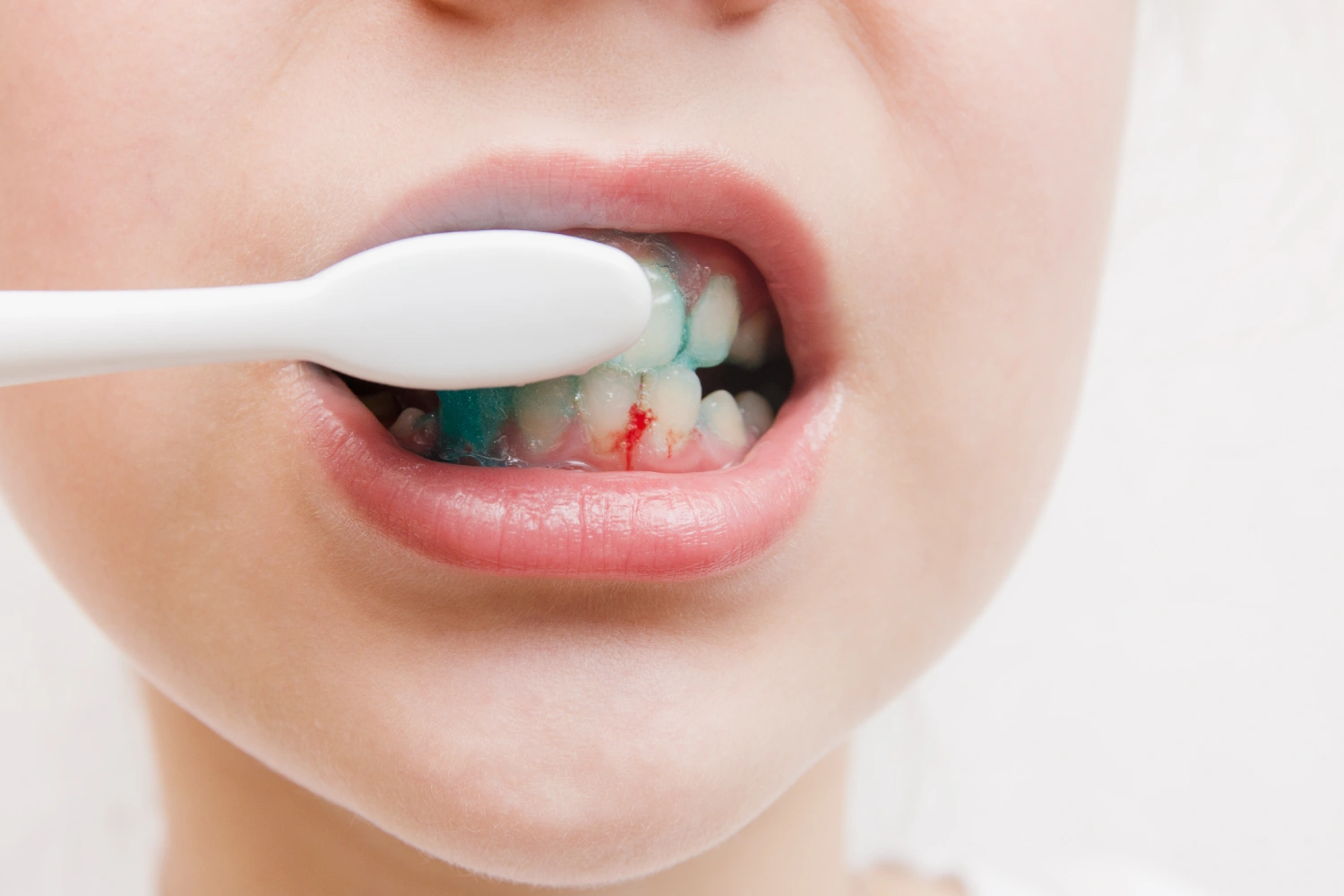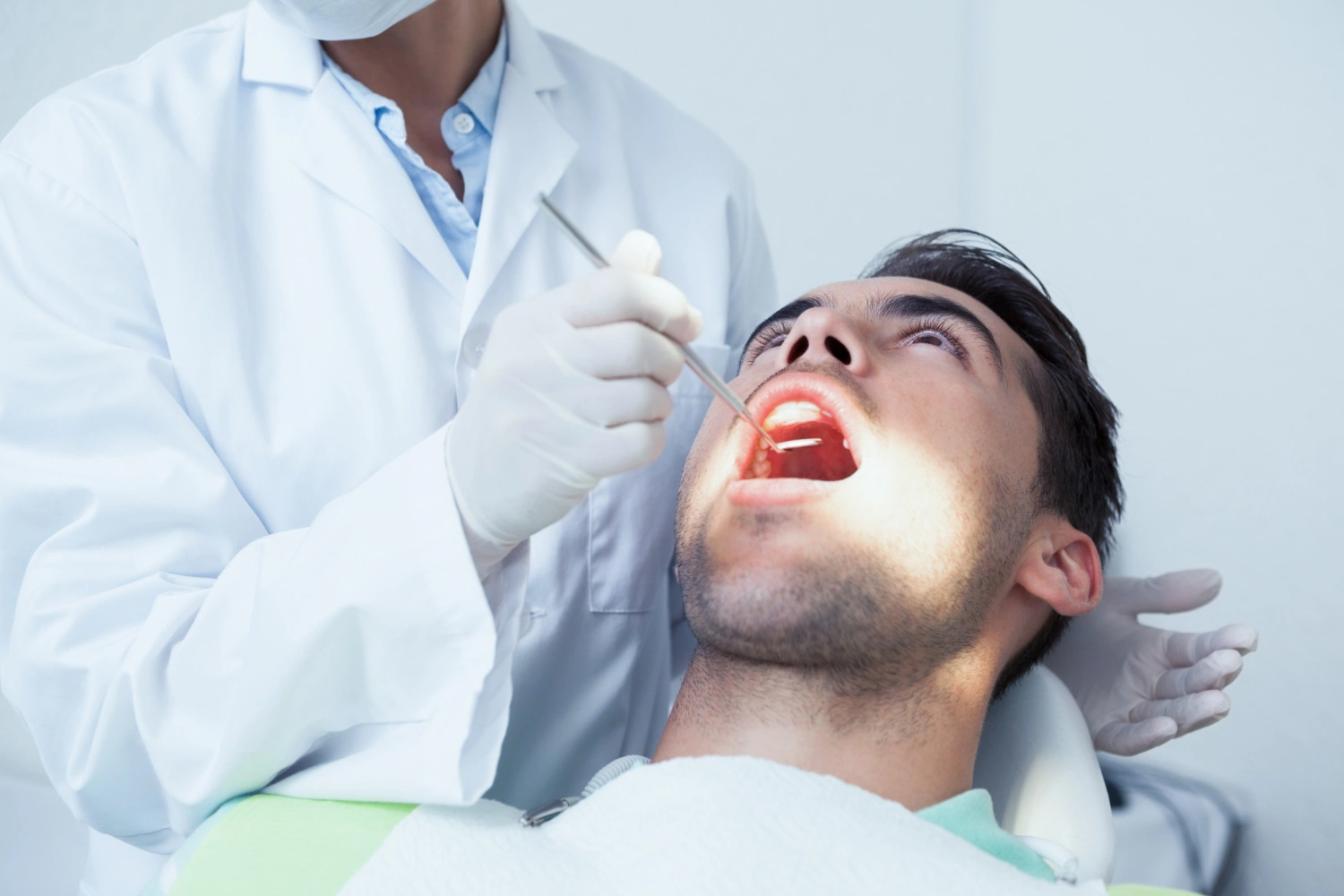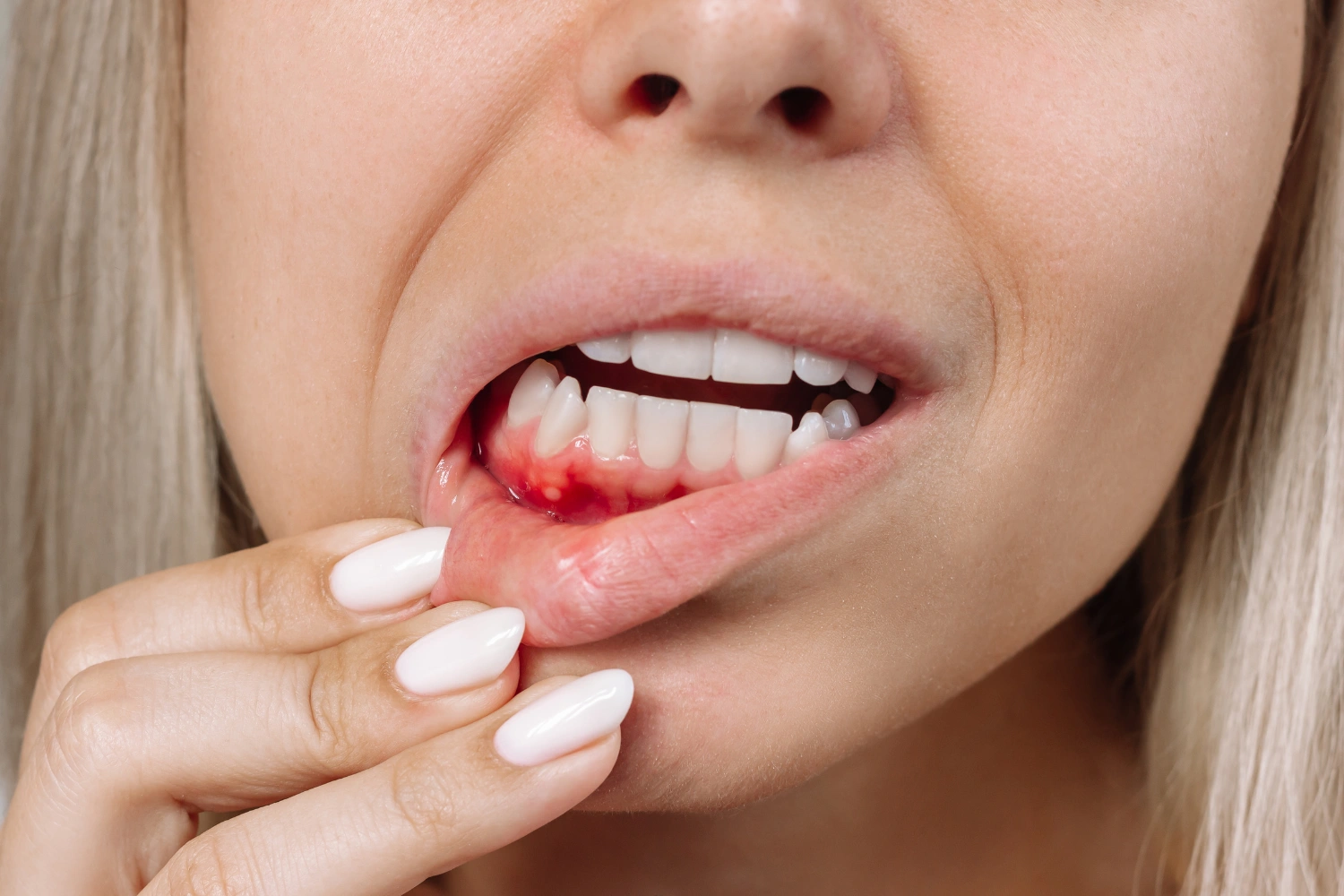Many people experience bleeding gums during brushing, and while it’s incredibly common, it’s important to understand that it’s not normal.
The good news is that bleeding gums are usually your mouth’s way of telling you something needs attention, and most cases are completely treatable. At Devon Dental Centre, we see patients who are concerned about bleeding gums, and we’re here to help you understand what’s happening and what you can do about it.
What Causes Gums to Bleed During Brushing?

Gum Disease (Gingivitis and Periodontitis)
The most common reason for bleeding gums is gum disease, which starts as gingivitis. In the early stages, you might notice your gums are red, swollen, or tender – and yes, they bleed when you brush. This happens because bacteria in plaque irritate your gum tissues, causing inflammation.
If left untreated, gingivitis can progress to periodontitis, a more serious condition where the infection spreads below the gum line. At this stage, you might experience persistent bad breath, receding gums, or even loose teeth. The earlier we catch gum disease, the easier it is to treat.
Brushing Too Hard or Using the Wrong Technique
Sometimes the problem isn’t disease – it’s technique. I’ve seen many well-meaning patients who think scrubbing harder will clean better, but aggressive brushing actually damages delicate gum tissue. Hard-bristled toothbrushes can be particularly harsh.
The solution is gentler brushing with a soft-bristled toothbrush. Think of it like washing a delicate fabric – you want to be thorough but gentle. Proper brushing technique involves small, circular motions rather than back-and-forth scrubbing.
Poor Oral Hygiene Habits
When plaque builds up along the gum line, it creates the perfect environment for bacteria to thrive. This bacterial party leads to inflammation, which makes your gums more likely to bleed. Inconsistent brushing and flossing allows this plaque to harden into tartar, which can only be removed by a dental professional.
Hormonal Changes
Pregnancy, puberty, and menopause all bring hormonal changes that can make gums more sensitive and prone to bleeding.
During pregnancy, increased progesterone can make gums react more strongly to plaque bacteria. If you’re experiencing hormonal changes, you might need to be extra diligent about oral care.
Vitamin Deficiencies
Your diet plays a bigger role in gum health than you might think. Vitamin C deficiency can lead to weakened gum tissue and increased bleeding – think of how sailors used to get scurvy. Vitamin K deficiency can also affect blood clotting, making bleeding more likely.
Medications and Health Conditions
Blood thinners, aspirin, and certain other medications can make bleeding more likely. Health conditions like diabetes can also affect gum health by reducing your body’s ability to fight infection and heal properly.
What You Should Do If Your Gums Are Bleeding
Schedule a Professional Dental Exam
The first step is getting a proper diagnosis. At Devon Dental Centre, we provide comprehensive evaluations to determine exactly what’s causing your bleeding gums. We work with patients throughout Devon, Leduc, and South Edmonton to create personalized treatment plans that address the root cause of gum bleeding.
Improve Your Brushing and Flossing Routine
Our dental hygienists can show you the proper technique for brushing and flossing. We often recommend soft-bristled toothbrushes and may suggest tools like water flossers for patients with sensitive gums.
Maintain Regular Dental Cleanings
Professional cleanings at Devon Dental Centre remove plaque and tartar that home care can’t reach. Most patients benefit from cleanings every six months, though some may need more frequent visits depending on their gum health.
Address Underlying Health Issues
If your bleeding gums are related to medications or health conditions, we’ll work with your healthcare provider to manage these factors while treating your gum issues.
Consider Nutritional Support
We can discuss dietary changes that support gum health, including foods rich in vitamins C and K. Sometimes simple nutritional adjustments can make a significant difference.
How We Help at Devon Dental Centre?

Comprehensive Gum Assessments
During a periodontal evaluation, we measure the depth of pockets around your teeth and assess the overall health of your gums. This helps us determine the extent of any gum disease and plan appropriate treatment.
Personalized Treatment Plans
Depending on your situation, treatment might include scaling and root planing (deep cleaning) or ongoing periodontal maintenance. We tailor our approach to your specific needs and comfort level.
Patient Education and Preventive Care
We believe in empowering our patients with knowledge and tools. Our team provides customized hygiene instruction and lifestyle guidance to help you maintain healthy gums at home.
When to Seek Immediate Dental Attention
While occasional minor bleeding might not be an emergency, you should contact us promptly if you experience persistent bleeding, severe pain, swelling, or signs of infection. Don’t wait for problems to worsen – early intervention is always better.
Remember, bleeding gums are treatable. Whether it’s a simple adjustment to your brushing technique or treatment for gum disease, we have solutions that can restore your gum health and get you back to pain-free brushing. For more information feel free to reach us at [email protected] or (780) 987 1046, and let us create a personalized experience just for you.

